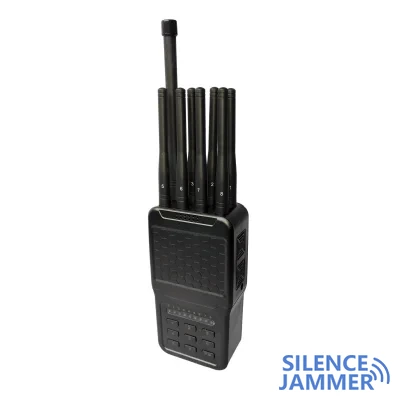In today's highly interactive era, protecting business negotiations and information safety are of paramount importance. With the advancement of technology and the spread of smart equipment, individuals and enterprises are facing ever increasing privacy and security threats. This article explores how mobile interference devices can be used to protect business activities and analyzes their technical features and considerations for legal use.

Business negotiations often involve confidential information and key strategies, the disclosure of which can lead to serious economic losses or competitive disadvantage. As a result, security measures in the executive and meeting rooms are essential to ensuring business secrets. Traditional information security measures cannot fully address the challenges posed by modern, high-tech surveillance and eavesdropping technologies, so we are looking for more effective solutions.

- Technical features of mobile phone interference
- Application Scenes and Effectiveness Evaluation
- Consideration of legal compliance
- Technological development and future prospects
A cell phone jammer is a device that uses electromagnetic waves to interfere with wireless communication signals, mainly used to block mobile phone signals, Wi-Fi signals and GPS positioning and other frequencies. Its working principle is to transmit electromagnetic waves of a specific frequency and interfere with the signal propagation of target equipment, making it impossible for normal communication or positioning. Modern mobile interference devices are usually designed as handheld or fixed installations, equipped with multi-stage covering capabilities, and can effectively prevent illegal monitoring and recording of surrounding equipment.
In commercial environments, mobile interference devices can be used in meeting rooms, office spaces and other private locations to ensure meeting content is recorded or listened to without unauthorized authorization. Its interference range can usually reach several tens of meters, and it has strong anti-interference capabilities and can effectively protect the confidentiality and safety of business agreements. In addition, mobile interference devices can also be used in public places to avoid interference with mobile equipment, creating order and tranquility in the environment, and improving environmental quality and safety.
Manage mobile interference devices to have effective protection and safety measures, and their use must comply with applicable legal compliance regulations. In most countries and regions, unauthorized use of interference may violate communications regulations and affect the normal communications rights of others. Therefore, when using a mobile interference device, be sure to comply with local laws and regulations and carefully evaluate the necessity and legality of its use.
With the continuous progress of technology, future mobile interference devices may become more intelligent and precise, for example by combining artificial intelligence and self-adaptive technology to more precisely identify and interfere with specific equipment signals. At the same time, as the public's awareness of private privacy increases, the legal framework may be strengthened in the future to balance the relationship between private privacy and freedom of communication.
Conclusion
Mobile interference is an important tool for protecting business safety and personal privacy, providing a creative solution. Under the premise of lawful use, mobile interference devices can effectively prevent unauthorized information collection and interference with communications, and can support technologies that can provide protection for business negotiations and confidential information. However, its use must be done with caution and in accordance with local laws and regulations, in order to ensure safety and not infringe on the legal rights of others.


